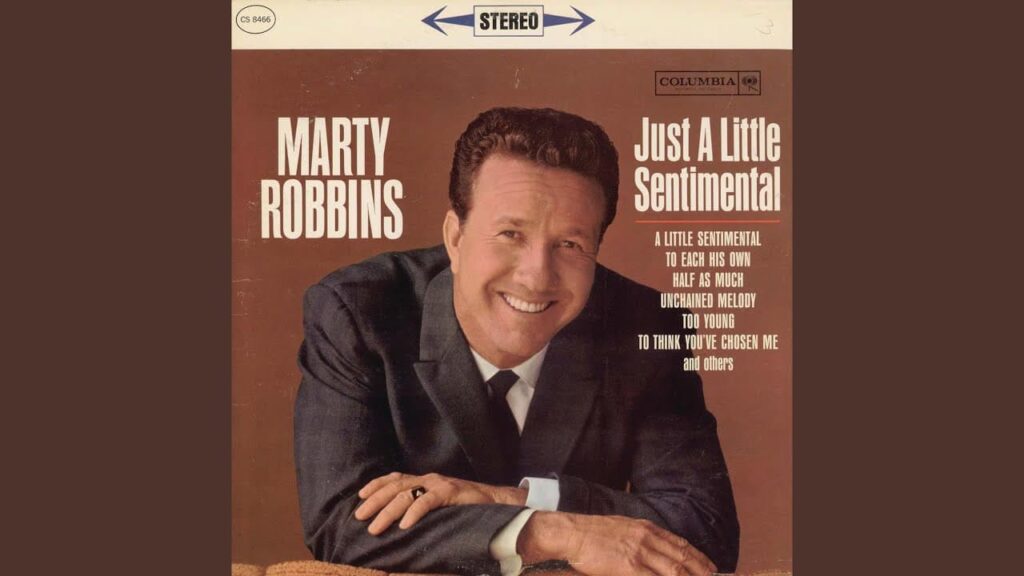
Marty Robbins’ Melancholy Ode to Enduring, Yet Fragile, Love
The year was 1960, a time when the world seemed to spin a little slower, and country music still held a deep, resonant sincerity. It was within this golden era that the legendary Marty Robbins released a tender track that would soon find its way into the hearts and onto the charts across America: “My Love”.
This gentle, reflective ballad wasn’t a barn-burner or a boot-stomper; rather, it was a subtle, heartfelt expression of enduring affection, a piece that showcased the nuanced artistry of a singer who was equally at home with the dramatic narratives of the Old West as he was with the soft whispers of a love song. “My Love” achieved respectable success, climbing the charts to a peak position of No. 6 on the Billboard Hot Country Singles chart. While perhaps overshadowed in memory by his monumental hits like “El Paso” or “A White Sport Coat (And a Pink Carnation)”, this song holds a significant place for the generation who bought the single, often as a romantic dedication played on jukeboxes and car radios throughout that decade.
The simplicity of “My Love” is where its enduring power lies. Penned by Marty Robbins himself, the song is a beautiful testament to the quiet, steadfast certainty that grounds a lasting relationship. The story behind it isn’t one of theatrical drama but of profound, personal devotion—it is widely understood to be a direct reflection of his feelings for his wife, Marizona “Mari” Baldwin. Their relationship, which spanned decades, provided the emotional bedrock for much of his finest work. The song captures the moment-to-moment reality of a committed life together, turning the ordinary into something sacred. It’s not about the whirlwind romance; it’s about the quiet realization that, even as the seasons turn and years fly by, one person remains the fixed point in a constantly changing universe.
The meaning of “My Love” is deeply moving for anyone who has experienced that kind of long-term, resilient affection. It’s a meditation on dependency and gratitude, couched in a sweet, almost lullaby-like melody. Robbins isn’t just saying “I love you”; he’s saying “You are the indispensable element of my existence.” The lyrics speak to a gentle fear of loss, an acknowledgment that the light and stability of his world are entirely contingent on her presence: “My love is yours forever, that’s what I long to say / For without your love beside me, I could not live a day.” This isn’t desperation; it’s the maturity of knowing that true love isn’t just an addition to life, but the very foundation upon which a meaningful life is built. For those of us who grew up with that sense of commitment—where a promise was a promise, and a marriage was built to last—the song evokes a palpable sense of warmth and wistful recollection.
Beyond its chart performance, “My Love” solidified Marty Robbins’ status as one of the great balladeers of his time, proving he could transition seamlessly from the sweeping cinematic grandeur of a western saga to the intimate tenderness of a bedroom whisper. It was featured on his album Marty Robbins’ Greatest Hits, which further cemented its place in his celebrated discography. The song’s instrumentation, typical of the early ’60s Nashville sound—clean, simple, and driven by a soft acoustic guitar and understated strings—serves only to spotlight the genuine emotion in Robbins’ flawless, buttery-smooth tenor voice. It’s a track that invites you to lean back, close your eyes, and recall the face of the person who first gave this simple, profound melody its deepest meaning for you. It’s a memory you can hear.